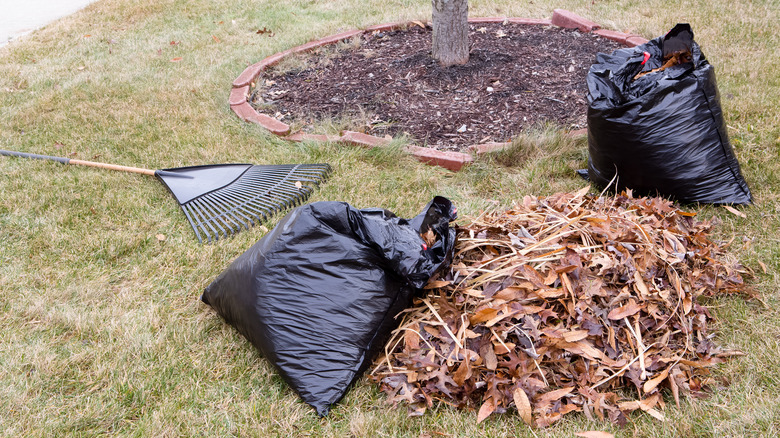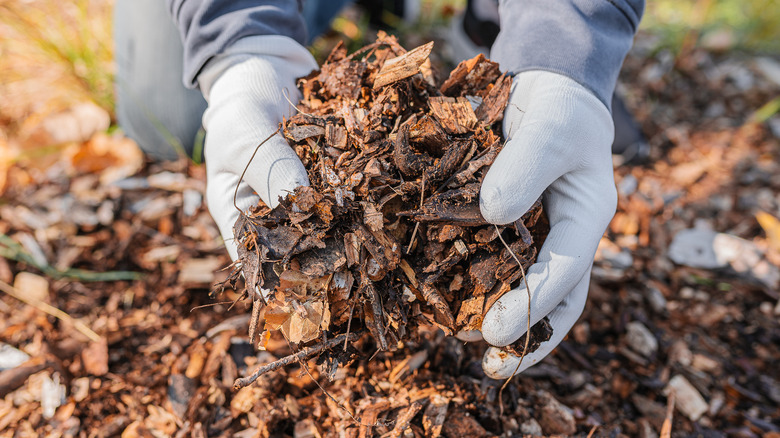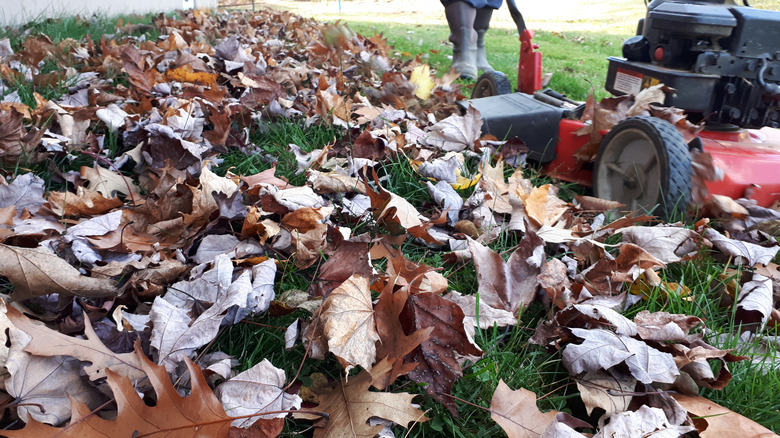Why You Should Never Bag Your Leaves And Send Them To The Landfill
Dealing with fall leaves can be overwhelming for those living in a home with one or more mature trees on the property. The simplest option may seem to be bagging them and sending them to a landfill. This process gives you the tidy yard you want with minimal effort, and many cities make this seem like the ideal option by providing bags or picking up your leaves for free.
Although convenient, the widespread practice of placing leaves in plastic bags and sending them to a landfill contributes to detrimental environmental changes. Not only does it take up a lot of space in overflowing landfills, but as they decompose, they create methane, a significant factor in climate change. An amusing meme circulates on social media in the fall, saying, "You know you don't have to rake your leaves. They don't break in and drink your wine or anything." And while we know this is true (we might be more compelled to rake if it were!), we also know many people like to have tidy lawns. So here are a few alternatives to raking your leaves and leaving them in a bag on your curbside.
Alternative disposal options
If you absolutely must rake your leaves, you have a few options for disposal. As we learn more about how harmful organic material is in landfills, more municipalities are starting composting programs. This process typically involves bagging and placing your raked leaves in compostable paper bags. Then you can either drop them off at the composting facility, or your city may pick them up for free. If your town does not offer this service, look for local non-profits or community gardens that may provide the same service.
Leaves also make an excellent addition to home compost bins or mulch in your flower beds. They break down quickly when shredded and provide beneficial nutrients for your plants. A blower with a vacuum shredder is an excellent way to turn them into mulch. If you have ever considered composting, there is no time like the present. Freshly fallen leaves provide nitrogen-rich green material to your compost bin, while dry brown ones add carbon. Both are necessary to create compost.
Consider leaving the leaves
This method can be difficult for some, but leaving fallen leaves where they lie has some benefits. Unless you have many mature trees in a small area, the leaves are unlikely to be dense enough to affect your grass. However, they will dry out and break down over winter, sending nutrients back into your soil. As you think about how to deal with them — or if you want to deal with them — consider this: Fallen leaves provide a safe environment where beneficial insects, like bees, can overwinter. The one small change from raking them into plastic bags and sending them to the landfill to leaving them over the winter is the difference between harming and helping the environment.
If you cannot bear looking at dead leaves all winter, a good compromise is to go over them with a mulching mower. By mowing over them, they will decompose much more quickly and provide free, organic fertilizer for your lawn. With this process, you have a tidy lawn that feeds your grass. It's a win for you and for mother nature.


